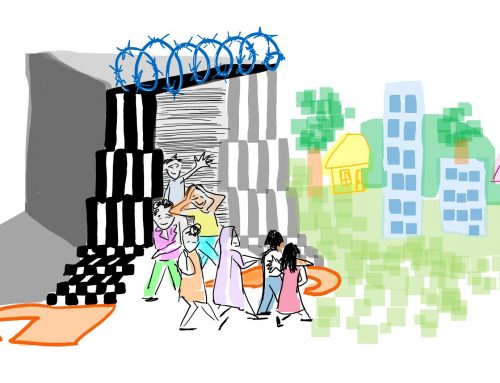Image by @Carcazan
We are saddened by yet another death in immigration detention last week in Morton Hall detention centre in Lincolnshire. It has been reported by the Guardian newspaper that a young detained Polish man took his own life, leaving his baby and his partner behind. The baby was born on the day of the man’s death. Our thoughts are with his family, friends and communities.
This is the third death in UK immigration detention in five weeks, and comes at a time when the government’s commitment to detention reform is in serious doubt.
When the Shaw Review was published just over a year ago, the then Immigration Minister James Brokenshire made several promises. They included strengthening safeguards for those at risk of harm in detention and introducing a new system of case management. He gave reassurances that these reforms would “lead to a reduction in the number of those detained, and the duration of detention before removal”.
The government’s new safeguarding mechanism, the Adults at Risk policy, has been challenged by many as simply not good enough. The policy is intended to protect individuals in situations of vulnerability from the harm of detention, but appears to have been ineffective in the context of the latest wave of deaths.
A long-awaited Immigration and Enforcement Business Plan 2016/17, which was to outline how the government planned to reduce the detention estate, remains unpublished, nine months after it was promised. In the meantime, the plan to replace Dungavel detention centre in Scotland with a short-term holding facility appears to be on hold.
The Home Office is yet to enact the provision in the Immigration Act 2016 for automatic bail hearings after four months of detention for some categories of individuals. This was one of the key focuses of debate in Parliament, after much pressure from parliamentarians for a time limit on detention.
While the government fails to deliver on its promises, migrants continue to be harmed by immigration detention and their dignity denied. Over 30,000 people experience immigration detention every year, some for months and years. Over half of them are eventually released back to their communities in the UK, with detention having served no purpose other than damaging their well-being and trust in the UK.
There is no excuse for delaying detention reform. Today, around 3,000 people are locked up in detention, isolated in often remote centres, behind walls adorned by barbed wire, in prison-like conditions and regime, without time limit. Many are racked by anxiety, uncertainty and stress.
We know it does not have to be like this. Evidence suggests that with careful planning, community-based alternatives to detention can enable migrants to engage with immigration procedures while remaining connected to their families, friends and support in the community.
We urge the government to start taking action today.





